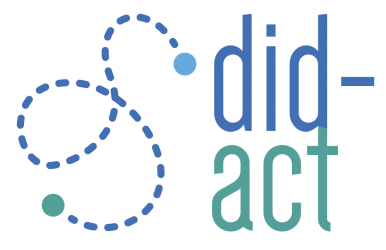by Felicitas Wagner & Sören Huwendiek, Universität Bern
The first phase of the DID-ACT project (January – June 2020) was a very intense and insightful time. The main goal of the first project phase was to conduct a needs assessment among different stakeholder groups regarding a longitudinal clinical reasoning curriculum for students and a train-the-trainer course for teachers. Also, barriers for the implementation for such a curriculum and course as well as potential solutions were investigated.
Continue reading “A look back on an eventful first half year”

